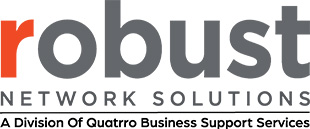Not everyone involved in technology knows the answer or even knows what these terms mean exactly, but they most likely hear the jargon thrown around a lot. If you’re not quite sure either, then you’re in the right place.
Many business leaders aren’t quite up to speed on all things cloud because it is not required as part of their day-to-day tasks. But once it’s time to migrate to the cloud from a legacy system or decide between setting up a new cloud system and using your own corporate data center, it helps to understand cloud system components. With accurate knowledge, you can work with your managed service provider to make the right decision about your business’ infrastructure.
What Is On Premise?
On premise, on premises, or on-prem refers to software and data housed in your own corporate data center instead of with a cloud provider. Before AWS, Azure, and Google Cloud, most companies built their infrastructure in-house.
With all the buzz about cloud computing, it’s important to know an on-prem solution is not necessarily a dated way of creating your business’s infrastructure. In some cases, it’s even the best option. If your team works in the office, then they will be able to access data and software quickly because it is right there. If you work in finance, healthcare, or another industry with strict regulations, hosting your data on-prem can help mitigate compliance issues.
However, there’s a reason everyone seems to be jumping on the cloud bandwagon. On premise does have disadvantages. A corporate data center is expensive to set up and maintain. Your team will have to manage the hardware, software, networking, and security, and you’ll need IT support. Also, unless you invest in a fail-safe backup and recovery system, an outage can destroy your whole infrastructure and result in data loss. Tech debt can also become a problem if your IT team falls behind in keeping your system up to date.
What Is a Private Cloud?
The “cloud” is a vague term that applies to the services, software, and servers you use to access and run over the internet instead of locally on your own hardware. One key feature of all types of cloud computing is virtualization, which allows you to create virtual machines, networking devices, and more with software that are traditionally hardware. This allows for more flexibility, scaling ability, and lower costs.
When most people speak of the cloud and are referring to AWS, Google Cloud, or Azure, they are referring to a public cloud. Public clouds allow anyone to sign up for an account and share resources with other users. On the other hand, a private cloud applies to cloud computing where the same type of resources are delivered to a business, but only the business has access to them. The business could own and manage the cloud, or it could be handled by managed IT services or outsourced IT.
A private cloud essentially gives you some of the benefits of a public cloud and some of the benefits of storing data on premises. In a private cloud, you’ll have all the features of a public cloud, like flexibility and remote access from anywhere in the world, but you’ll also get some of the security features of an on-premise data center. Only your business has access to your private cloud, so it works well for regulated businesses. The cost could be similar to using your own corporate center because they’ll require hardware and storage, unlike a public cloud where these resources are “rented.”
What Is a Hybrid Cloud?
A hybrid cloud is a cloud computing solution that leverages both an on-premise data center and either public or private cloud computing resources. When implemented correctly to fit your business needs, it can combine the best of both worlds, making it easier to optimize workflows while using the most suitable environment for your applications and data.
With a hybrid cloud solution, you can keep sensitive or critical data on your on-premise infrastructure under your control and server that data within the company through a private cloud that only your business can access. You can even add a public cloud to your infrastructure for public-facing websites and applications and get all the advantages of scalability and failover that come with it. A hybrid cloud offers the ultimate flexibility in setting up your infrastructure to fit your business needs.
While a hybrid cloud system could be the ultimate solution, implementing one also has some challenges. It takes some planning to set one up, and the team needs to know your current system and cloud technologies well to ensure you get the desired solution. You will also need an IT team or managed service provider to oversee and maintain your hybrid cloud.
How to Choose the Right Solution
Choosing the right IT infrastructure for your business is not easy, and implementing one also comes with a set of challenges. For many businesses, a hybrid cloud is the most flexible solution, but it could be too much if your business won’t use all of its features. This isn’t a choice or a change you have to — or should — do alone.
If you’re looking to improve your business’s IT infrastructure, contact Robust Network Solutions today. Our team of highly skilled IT and cloud technology professionals will help you determine what works best for your business and provide ongoing support, management, and technology consulting to keep it running at peak performance.

